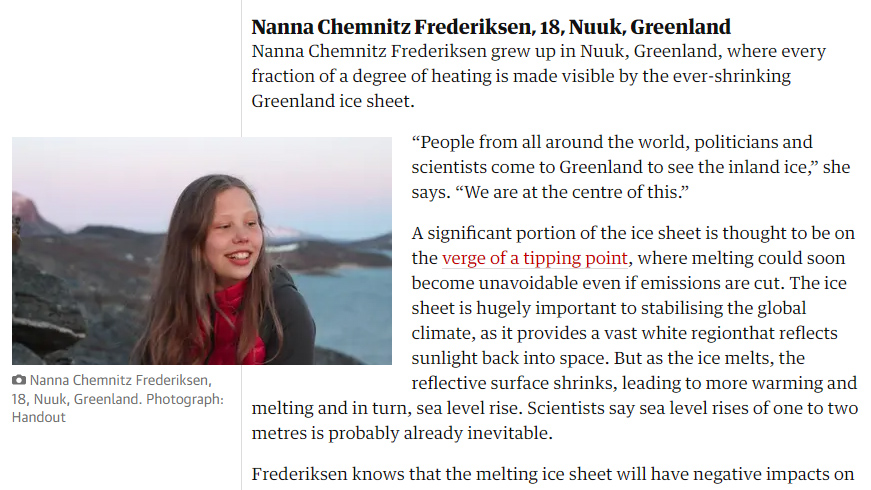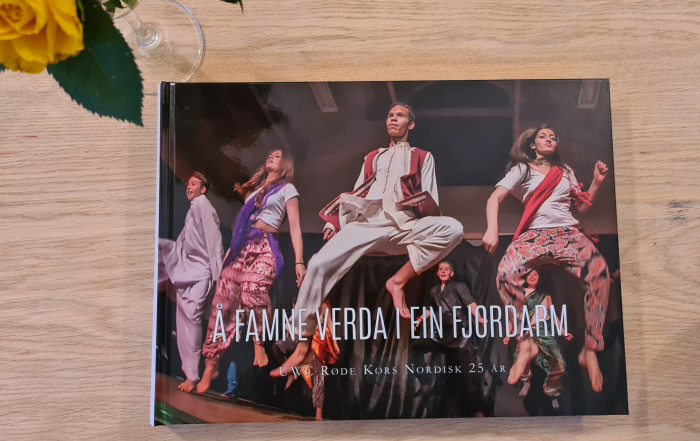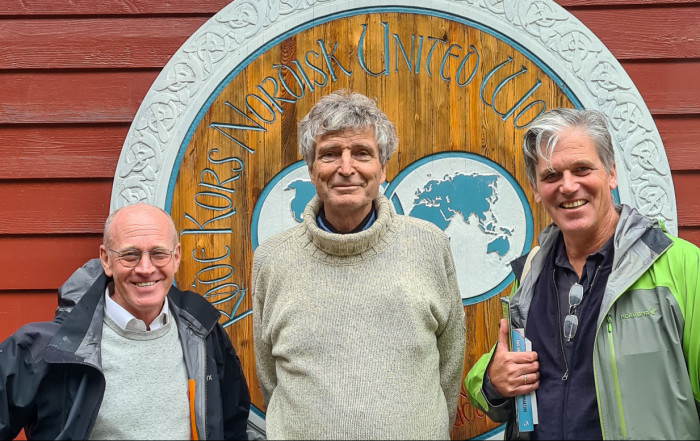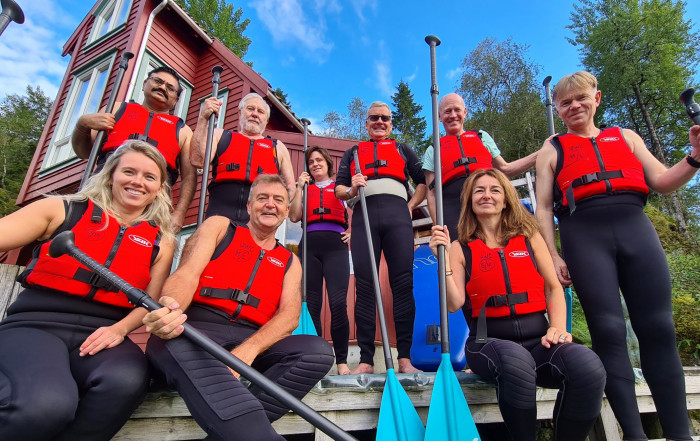“People from all around the world, politicians and scientists come to Greenland to see the inland ice,” she says. “We are at the centre of this.”
A significant portion of the ice sheet is thought to be on the verge of a tipping point, where melting could soon become unavoidable even if emissions are cut. The ice sheet is hugely important to stabilizing the global climate, as it provides a vast white region that reflects sunlight back into space. But as the ice melts, the reflective surface shrinks, leading to more warming and melting and in turn, sea level rise. Scientists say sea level rises of one to two metres is probably already inevitable.
Frederiksen knows that the melting ice sheet will have negative impacts on communities across Greenland, especially in northern settlements such as Qaanaaq where permafrost melting is destabilizing homes and roads and impacting how fishers and hunters operate.
But her real concern lies on the impact it will have globally. “I am not so scared of what the effects of the melting of ice in Greenland will be,” Frederiksen says, “It scares me what effect it can have for the rest of the world.”
Latest News
Book launch on UWC Day
The story of the first 25 years of UWC Red Cross Nordic is written by award-winning author and journalist Mette Karslvik, a first-generation alumna of the college. Through individual narrative, Karlsvik paints a [...]
A Doer and a Thinker
At the end of his engagement for the Fjaler Theatre Festival, Dag Hareide visited our college to engage with our students. Dag Hareide is an author, organizational leader, and interdisciplinary thinker. He has [...]
Beginning of the year Board Meeting
On the weekend of September 2nd – 4th, the new board of RCN met for the first time since our new principal Pelham Lindfield Roberts was appointed in early summer. Appointing a new head [...]




